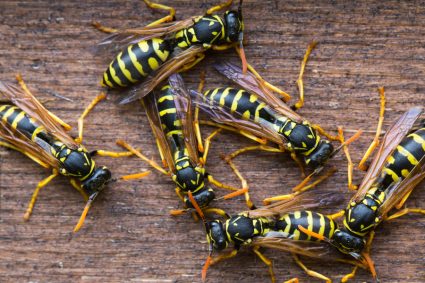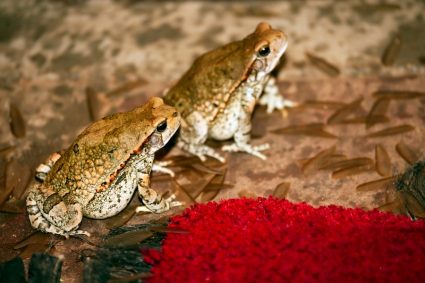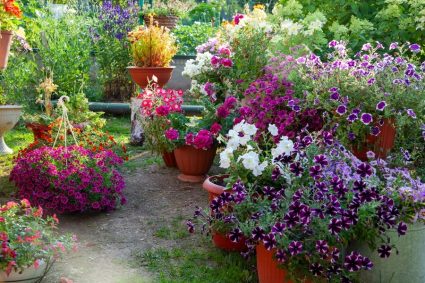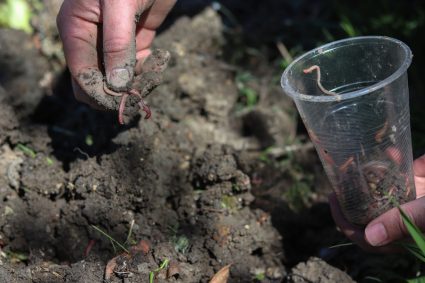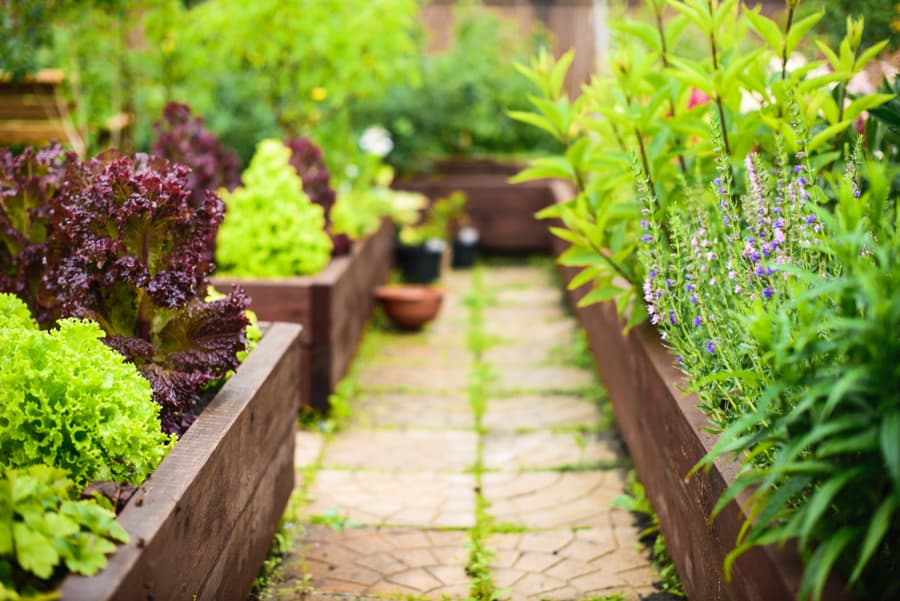
Raised bed gardening is one of the most satisfying and rewarding activities. However, you need to be aware of pests when planting your fruits and vegetables. Not all bugs are created equal, but some destroy gardens and are difficult to eliminate.
So how to keep such pests out of raised beds?
Here are 5 of the best methods to ensure that your raised bed garden thrives and blossoms the yummiest of fruits and veggies:
- Boost your garden’s defenses with natural predators.
- Give some space between plants.
- Water your plants at the right time and with the proper amount.
- Confuse the pests with crop rotation and intercropping.
- Sprinkle some diatomaceous earth on top of the soil.
These are simple DIY measures to keep your raised bed garden pest-free.
Let’s go into the details of how you can apply these methods to prevent pest invasions from destroying your hard work.
5 Ways To Prevent Pests From Invading Your Raised Beds
Pests are tenacious little nuisances, so you’ll have to stay vigilant and ready to defend your grounds all year round. Let’s go!
1. Bring In Your Defenders
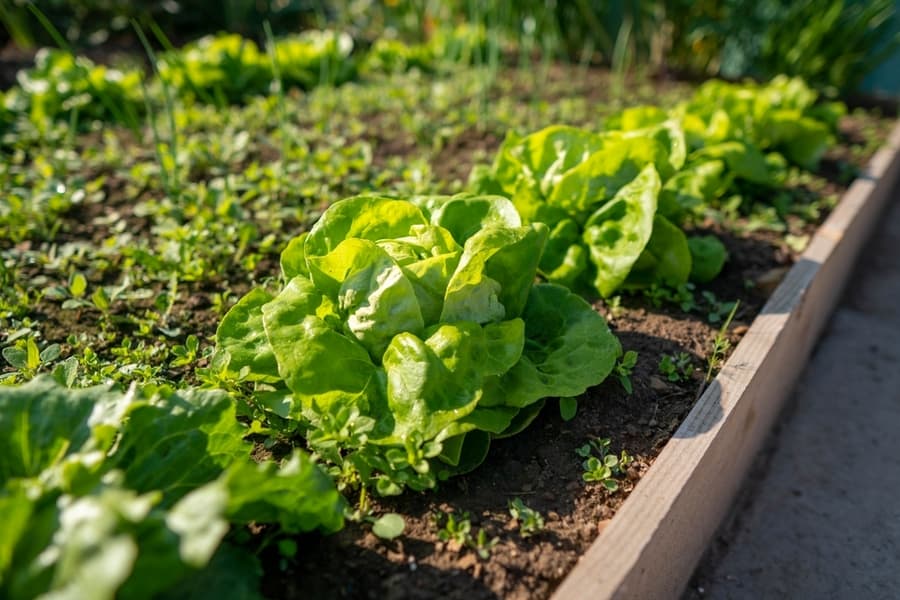
Fight bugs with bugs and whatever else you can attract to your raised beds.
Start a Bug Recruitment Drive
Sometimes, it can be difficult to distinguish between the good bugs and the bad ones. Remember, not every insect comes to your garden to feast and destroy.
Grow plants that attract lace wigs, ladybugs, predatory wasps, lady beetle nymphs, and praying mantis. These are predatory bugs and will keep the garden free from troublesome pests.
Plant some flowers, dill, lettuce, herbs, sweet alyssum, and other such plants to make your garden friendly towards these bugs.
Call In Nature’s Airforce
Birds have a bad reputation when it comes to gardens. However, they can help chow down the critters as they are a nutritious protein source.
You can get a bird feeder to attract birds near your raised beds; from there, they can spot and feed on any problematic pests.
Enlist Some Battle-Toads
Frogs love to feast on pests, and what better way to defend your raised bed gardens than to give them residence in a toad house?
Place it in the dampest spot under the shade and get a toad to move in. Once settled in, the toad will take the fight to the pests!
2. Give Some Space Between Plants
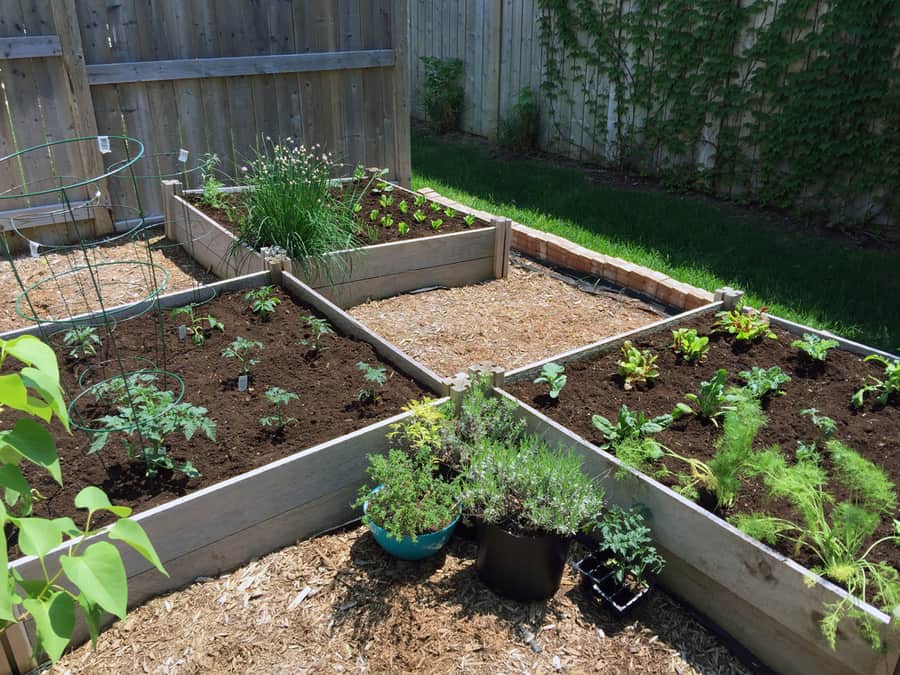
If you’re thinking you can get more out of your garden by placing plants close to each other, you need to stop. The dense bunch of plants may look good for a while, but it can lead to trouble in the long run.
A tightly packed garden is a hotbed for pests as they can easily hide and move around undetected. They get plenty of cover from predators and the sun’s heat.
So place your plants at a distance enough for easy inspections.
3. Water at the Right Time and the Proper Amount
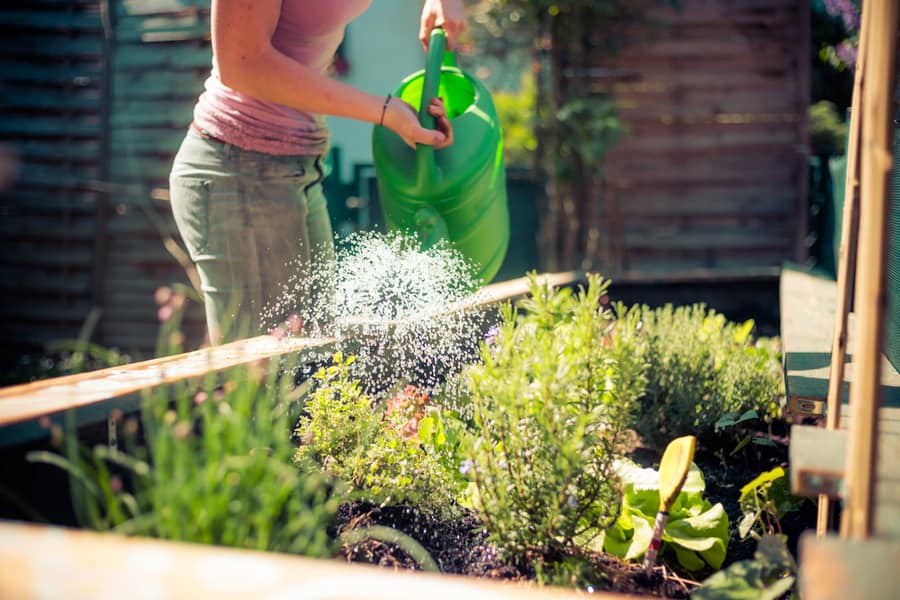
Like humans, healthy and strong plants can far better fend off diseases and pests. Giving them the right amount of water at the right time is key to ensuring they stay healthy.
Stressed and weak plants are prime targets for pests as they offer little to no resistance!
The best time is to water them in the morning because:
- Your plants will be properly hydrated throughout the day, especially during the peak heat hours.
- The dampness will dry off before evening, which is not ideal for pests.
Instead of watering them little amounts daily, give them ample water three times a week, so it reaches the roots. Ensure the water doesn’t stand, similar to inviting trouble to your garden.
4. Confuse the Pests
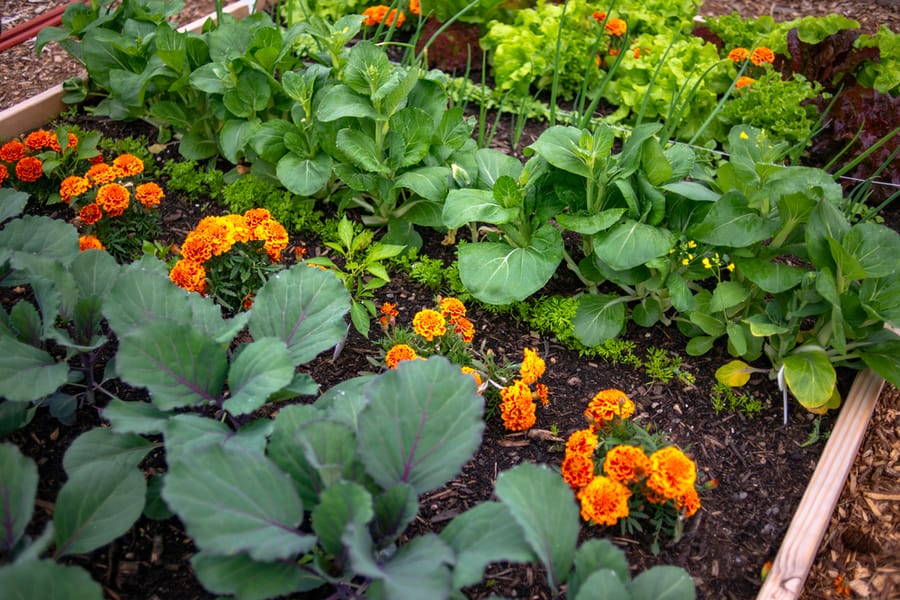
Instead of having the same plant in a single file line close to each other, mix and match different flowers, vegetables, and fruits. This will confuse the pests, making it difficult for them to get to the plant they want to eat.
The more diverse your raised bed garden is, the more confusing it will be for the pests to home in on their favorite crop.
Additionally, planting out-of-season crops or rotating your crops can also deter bugs. Changing things up will prevent any potential diseases or pests from settling down.
Crop rotation also ensures that the soil remains healthy for longer periods!
5. Sprinkle Diatomaceous Earth
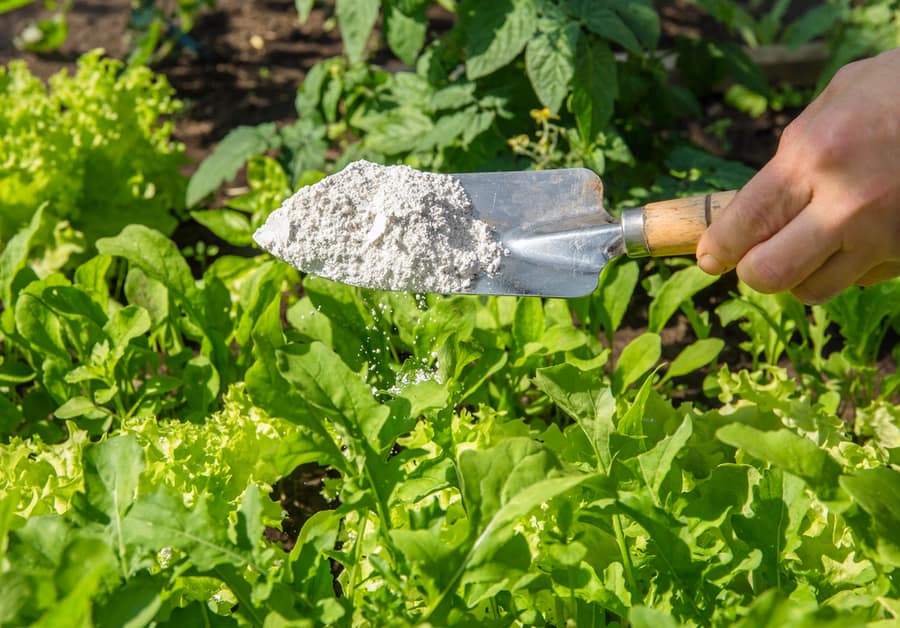
One of the best and easiest ways of preventing pest invasions on your raised beds is to sprinkle diatomaceous earth.
Made from fossilized aquatic life remains, this powder does not harm your plants while destroying all the eggs, larvae, and pests it touches.
Diatomaceous earth kills all types of pests with exoskeletons. So check for any friendly bugs in your raised bed garden before applying this powder.
Summary
If you’re serious about growing plants in raised bed gardens, you must stay on your toes regarding pests. Arm yourself with 5 of the following strategies to keep them at bay:
- Enhance your garden’s defenses with natural predators.
- Give some space between plants.
- Water your plants at the right time and with the proper amount.
- Confuse the pests with crop rotation and intercropping.
- Sprinkle some diatomaceous earth on top of the soil.
Now that you know how to keep pests out of raised beds, you can grow your fruits, herbs, flowers, and vegetables without worry!
Frequently Asked Questions
Why Should I Put Cardboard at the Bottom of My Raised Bed?
Cardboard enhances the soil’s nutrient levels while improving the garden’s drainage and adding more organic matter. In short, it’s the perfect mulch!
How Can I Enrich the Soil in My Raised Bed Garden?
You can enrich the soil when:
- You add soil amendments like grass clippings, cornmeal, and vermiculite.
- You add the soil with compost each season.
- You aerate the soil with cover crops.
Should There Be Drainage in Raised Beds?
Yes! Drainage is crucial for a thriving raised bed garden as it prevents waterlogging and oversaturation of the soil, which can lead to weak plant growth.



